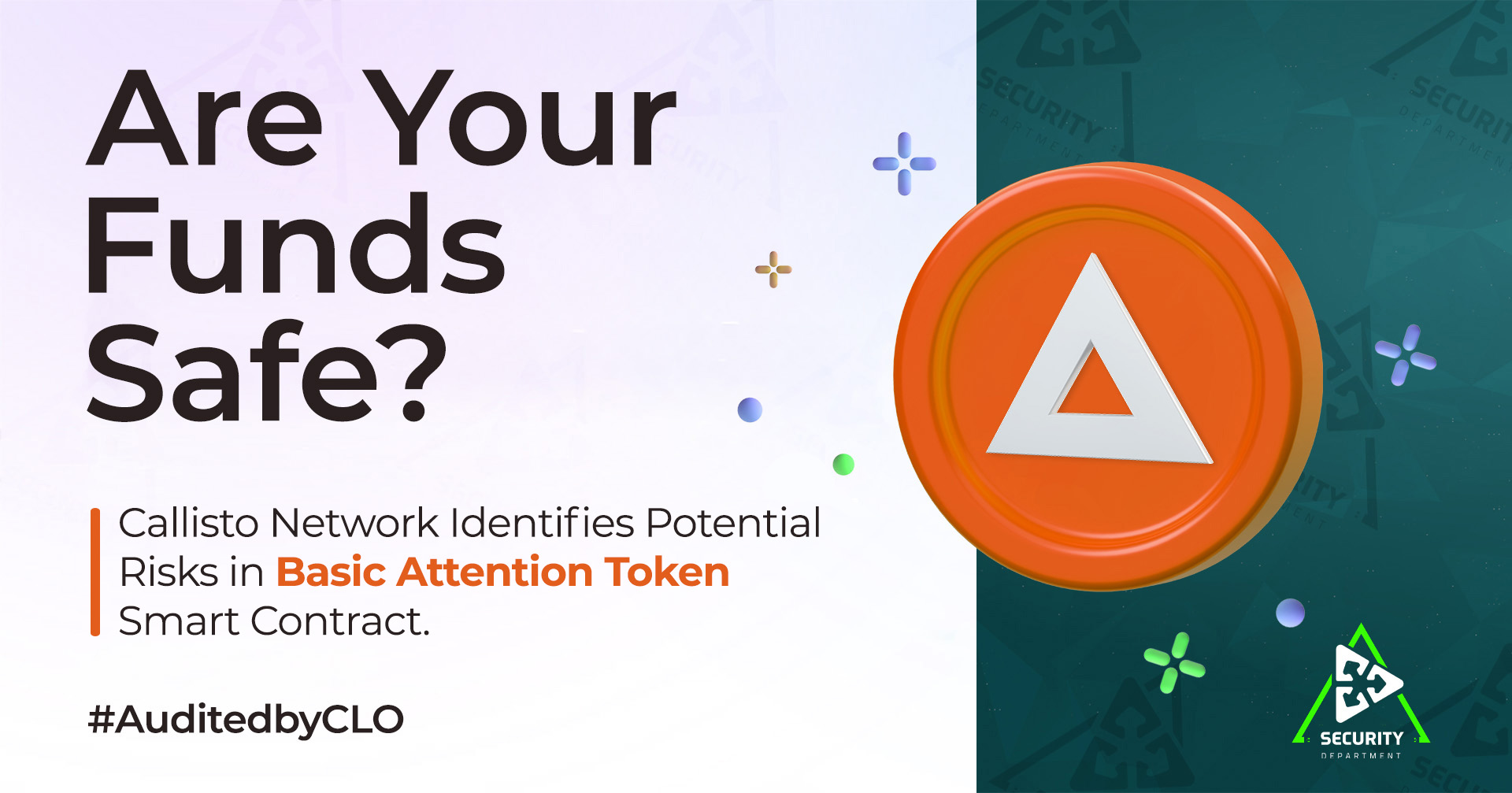Basic Attention Token (BAT) Security Audit Report
Are Your Funds Safe?
Our expert team at Callisto Network has conducted an in-depth security audit of the Basic Attention Token (BAT) smart contract. This audit aims to ensure the security of your funds by identifying and assessing any potential vulnerabilities. Here, we present our findings:
Executive Summary
This report presents the results of the security audit conducted by the Callisto Network Security Department on the Basic Attention Token (BAT) smart contract in April 2019. It analyzes the contract’s security in-depth and highlights any identified vulnerabilities.
1. Scope of the Audit
The audit focused on the following Basic Attention Token (BAT) contract:
2. Audit Findings
Our audit reported a total of 4 finding(s), categorized as follows:
- 0 high-severity issue(s).
- 1 medium severity issue(s).
- 3 low-severity issue(s).
No critical security issues were found.
2.1 Known Vulnerabilities of ERC-20 Token
2.2 ERC20 Compliance — transfer should throw
2.3 ERC20 Compliance — zero-value transfers rejecting
2.4 ERC20 Compliance — event missing
3. Conclusion
The audited smart contract has some issues with ERC20 Compliance that could cause money loss in a particular situation. We recommend fixing these issues.
About Callisto Network
Founded by Dexaran, co-founder of Ethereum Classic, Callisto Network is a blockchain platform that prioritizes security. We’ve conducted over 330 smart contract audits across platforms like Ethereum, Ethereum Classic, and EOS. In addition to our audits, we’ve developed the ERC 223 token standard and CallistoNFT standard, enhancements over existing standards that address flaws and offer new capabilities, further establishing us as industry leaders in crypto-security.










